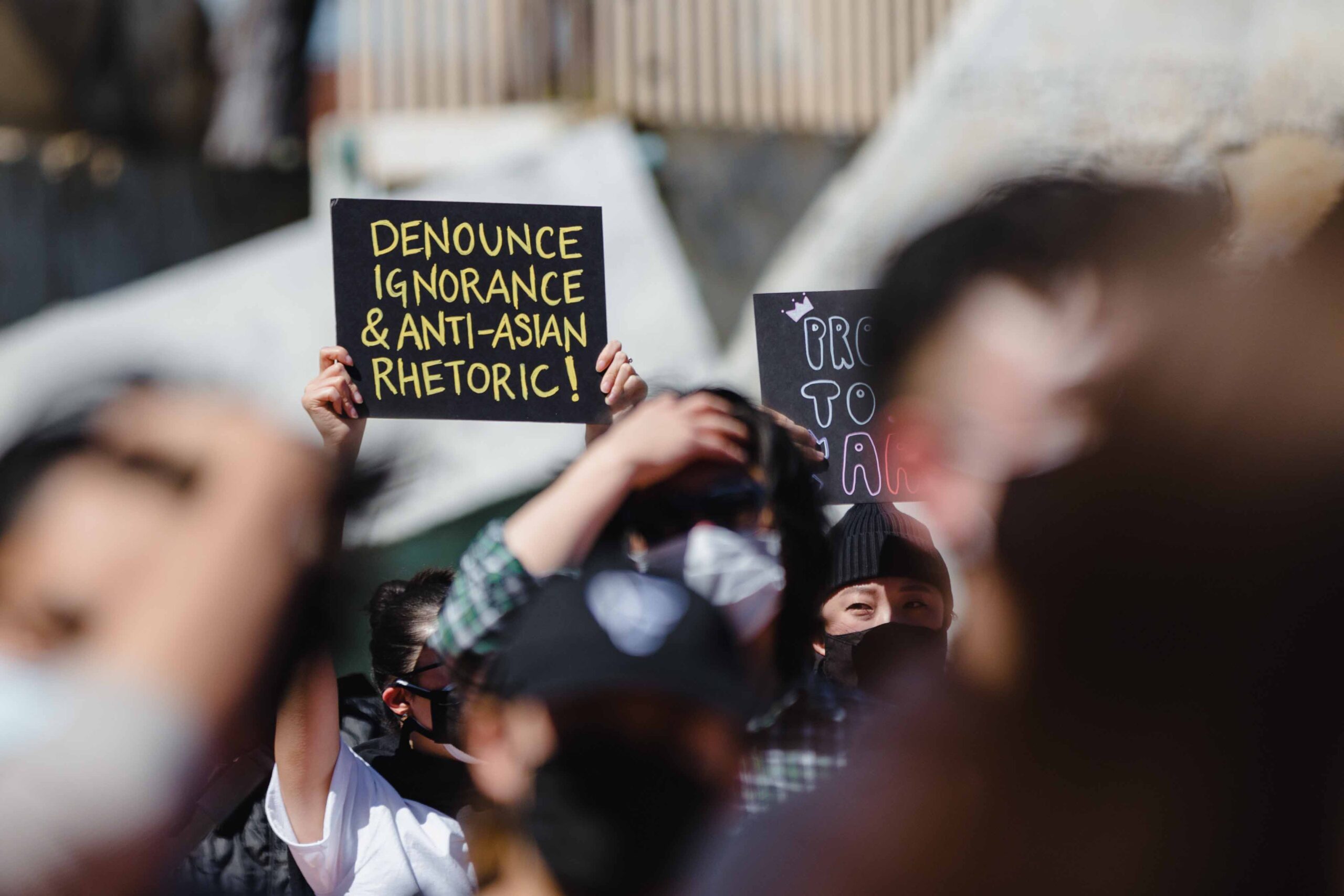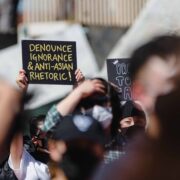
Education is critical in the campaign against anti-Asian hate especially today as Asians have become the face of the coronavirus. All Asian Americans have a stake in this education project.
Since the beginning of the year, as awareness about the spike in anti-Asian hate crimes has grown, so have public displays of condemnation and protests. Protests are an effective way of calling attention to the issue; they are consciousness-raising events, and media coverage can multiply their effect. But they do not replace the hard work of educating the public on who we really are, especially our contributions to the fabric of American society.
Over the last two weeks, two noteworthy government actions in support of the campaign against anti-Asian motivated behavior took place. Last week, California’s Attorney General Rob Bonta announced the establishment of a Racial Justice Bureau within California’s Department of Justice. This week, the United States Congress, in a bipartisan effort (unusual for a highly polarized Congress), passed the COVID-19 Hate Crimes Act, which President Biden signed into law.
Among the bill’s “findings” to justify the measure is the dramatic increase in hate crimes and violence against Asian Americans during this pandemic. It even mentions the recent shooting deaths of Asian American women in Atlanta, Georgia.
Asian American Advocacy groups have lauded the legislation, yet I cannot help asking, does it go far enough?
Once signed into law, the bill enhances existing federal laws against hate crimes by requiring the Dept. of Justice to designate an officer to facilitate an expedited review of hate crimes, and through grantmaking, encourages state and local jurisdictions to adopt a policy on identifying and investigating hate crimes and establishing a specialized unit to handle these cases. These measures will make it easier to gather information and report hate crimes, and by implication, to prosecute perpetrators.
Statements by one of the bill’s authors, Senator Mazie Hirono (D. Hawaii), indicate that the bill addresses the apparent lack of a uniform policy among law enforcement agencies on what constitutes a hate crime, its investigation and prosecution. The Atlanta, Georgia massacre laid this bare: law enforcement appeared to give credence to the suspect’s statements that his attacks were not racially motivated, and that he was having a bad day and a sexual addiction as they seemed to dismiss the fact that Asian American business establishments were targeted and six of the eight murder victims were women of Asian descent.
The legislation addresses a problem about the state of confusion in law enforcement regarding the identification, investigation, and prosecution of racially motivated crimes where Asian Americans are the victims. Through its grant making provisions, states and local jurisdictions are required to report about law enforcement activities to prevent, address, or otherwise respond to hate crimes
Additionally, they are encouraged to adopt a policy on identifying, investigating and reporting hate crimes and to adopt a standardized system for collecting, reporting, and analyzing the incidence of hate crimes. Likewise, they are urged to establish specialized units for these purposes.
The law will definitely result in a more coherent policy about hate crimes and their expeditious investigation and prosecution. These are necessary steps to increase awareness and understanding of hate crimes targeting Asian Americans by law enforcement agencies.
At the start of the COVID-19 pandemic, federal agencies and state governments were severely hampered by a lack of data on the disease —due to inadequate testing — that would have enabled them to craft coherent and rational health policies against the spread of COVID-19—nevermind the incompetent leadership at the highest levels.
An inadequate and uneven understanding of what constitutes a hate crime among law enforcement organizations likewise handicaps the campaign against anti-Asian hate behavior. The new federal law will correct this. Ultimately though, the legislation is a law enforcement-focused response.
It does nothing to address the deep-seated and deeply entrenched attitudes about race in America. Given our current ambivalence about law enforcement and its need for reforms, merely enhancing law enforcement’s capabilities in addressing hate crimes is reminiscent of this nation’s war on drugs, which viewed drug addiction simplistically as a law enforcement problem, and worse, treating it as a problem largely confined to minority communities. As a consequence law enforcement stood by helplessly as the opioid epidemic raged taking thousand of American lives regardless of color.
In this regard, the actions of California Attorney General Rob Bonta demonstrate a much more nuanced understanding of the issue. In creating the Racial Justice Bureau Bonta gave it a mandate to “combat hate crimes and work with local leaders to implement innovative solutions to prevent hate,” and outlined an expansive agenda that includes stepping up outreach and working with community organizations and law enforcement on hate crimes prevention, information sharing, and reporting. More significantly, Bonta also indicated that this new bureau will address the issue of implicit and explicit bias in policing through its investigative activities as it develops and shares guidance on law enforcement best practices.
The issue of implicit and explicit bias in policing is the elephant in the room when it comes to enhancing law enforcement’s ability to respond to racially motivated crimes. Racial bias in policing is a serious problem that must be factored in when considering law enforcement’s role in hate crimes prevention. I am glad Rob Bonta is cognizant of the issue, and making it among the key issues that the new bureau will focus on.
Anti-Asian hate crime is part of a deep-rooted social problem that stems from America’s failure to come to terms with its slave-owning past whose white supremacist attitudes are perpetuated by white privilege. Asian Americans have a rather long history of being targets of racist bias that were institutionalized thru exclusion laws, anti-immigration laws and anti-miscegenation laws. Through the several American involved wars in Asia, Asians have also at various historical periods, become the face of the enemy. Today, due to insensitive and careless attribution, Asian Americans have become the face of the covid-19 virus, bringing these latent anti-Asian attitudes to the surface resulting in a corresponding increase in anti-Asian aggressions including violent crime.
Any campaign against anti-Asian bias motivated behavior must acknowledge that this is racist bias. Law enforcement can only address behaviors that rise to the level of violent crime and even here, it must be cognizant of the biases among its officers. To get beyond racist bias, education and intentional empowerment of minority communities are critical.
This is where Asian Americans, and Filipino Americans in particular play a critical and necessary role. We have to provide the leadership, and the muscle for educating Americans about us, our history, and our contributions to this society — an essential goal if we are to tear down the stereotype of Asians as foreigners.
When my former colleague, Yuji Ichioka (rest in peace) coined the term “Asian American” he was envisioning that “new Americans” from Asia would see themselves as part of a broader American community with ancestral roots in Asia, just as Caucasian Americans acknowledge their ancestral roots from Europe. In the academy, this vision is implemented through departments of Asian American Studies. This is the tip of the spear in the educational campaign about Asian Americans. In recent years we have added elements like Asian American history month, and Filipino American history month. But these have remained largely academic projects. In the Filipino community, our most salient celebrations revolve around June 12th, Philippine Independence Day, a celebration that sends mixed messages, as it reinforces our foreigner status among Americans.
The one exception to this is the annual Festival of Pilipino Arts and Culture (FPAC) held in October, during Filipino American History Month. Sadly this event has received only mixed and lukewarm support from the Filipino community in Southern California. We can start our participation in the campaign against anti-Asian Hate, by giving FPAC more enthusiastic support, and by seeing it as an opportunity to reach out to our non-Filipino friends and using the annual FPAC festival as a means of introducing them to our history and culture in America. Other teaching moments abound with Filipino produced musical events, and plays. As I write this, the Ford Theater, across the freeway from the Hollywood Bowl has just commissioned a set of Filipino American-centered cultural productions.
Stay tuned, and be sure to invite non-Filipino friends, too. And of course, there is our food, which young Filipino chefs are busy elevating to gourmet levels. Outreach and teaching opportunities about who we are, are endless if we expend the effort. It’s called taking pride in who we are.
When it comes to educating Americans about Asians, particularly about Filipino Americans, we have to be activists and provide leadership as well. By taking an active role in educating Americans about us, we have control over the information they receive thereby disabusing them of any stereotypes about us and Asians. We can all be educator-activists against anti-Asian bias by simply sharing our culture.
* * *
The opinions, beliefs and viewpoints expressed by the author do not necessarily reflect the opinions, beliefs and viewpoints of the Asian Journal, its management, editorial board and staff.
• • •
Enrique de la Cruz is Professor Emeritus of Asian American Studies at Cal State University, Northridge.




